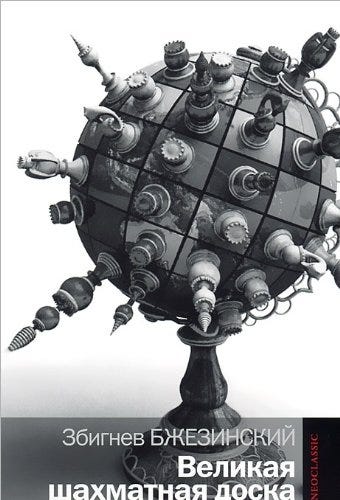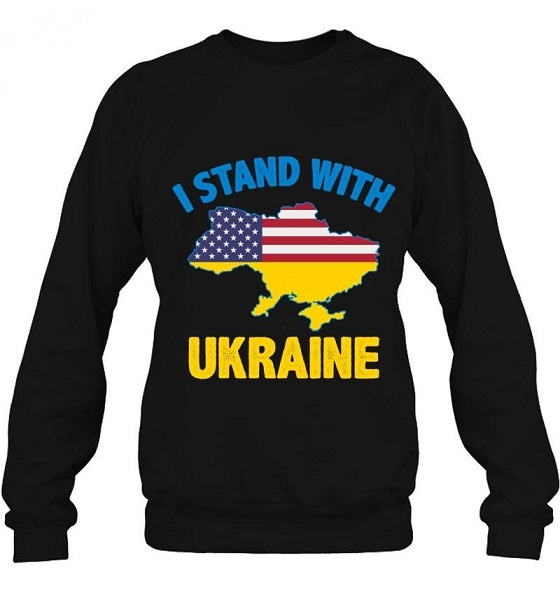War is a game. A tactical game, a game of strategy, a game of high stakes. Planned, analysed, revised, strategised, fought, and ultimately won or lost. Rarely does war end in a stalemate. The stakes are too high. It’s brutal, unforgiving and impartial.
There’s perhaps no book that reflects this gamified aspect of geopolitics (of which war is at the heart) as much as Zbigniew Brzezinski’s The Grand Chessboard: American Primacy and its Geostrategic Imperatives. It reduces conquest and neo-imperialism to nothing more than the shuffling of a few pawns, or the careful positioning of key players at strategic places on the great chessboard of the earth.
Brzezinski was at the heart of American foreign policy from the 1950s, working closely with presidents Lyndon B. Johnson and Jimmy Carter. They say he was a key mentor to Barack Obama.
It was in the abovementioned book penned in 1997 that he laid out the geostrategic objectives essential to the United States if they were to maintain their global preeminence in matters military, financial and economic. He identified France, Germany, Russia, China, and India as the five major powers in competition with the US (note the absence of Britain and Japan). He identified five more as what he called ‘geopolitical pivots’, those being Ukraine, Azerbaijan, South Korea, Turkey, and Iran. These are the countries around which power would hinge and could be projected outwards from. For example, as long as the US held some form of control over South Korea (militarily and financially), they would always have a base from which to threaten China. Should they lose it, then their dominance in the whole of the Pacific would be weakened.
So too is it with Ukraine for Russia. Here’s how Brzezinski articulates Ukraine’s role in Eurasia:
Ukraine, a new and important space on the Eurasian chessboard, is a geopolitical pivot because its very existence as an independent country helps to transform Russia. Without Ukraine, Russia ceases to be a Eurasian empire… However, if Moscow regains control over Ukraine, with its 52 million people and major resources as well as its access to the Black Sea, Russia automatically again regains the wherewithal to become a powerful imperial state, spanning Europe and Asia.
For Brzezinski, control of Ukraine is key to keeping a stranglehold on Russia and preventing it from any assumption to power and expansionism. He makes a point of stressing the catastrophic effect the loss of Ukraine had on Russia after the fall of the Soviet Union:
Most troubling of all was the loss of Ukraine. The appearance of an independent Ukrainian state not only challenged all Russians to rethink the nature of their own political and ethnic identity, but it represented a vital geopolitical setback for the Russian state… The loss of Ukraine was geopolitically pivotal, for it drastically limited Russia’s geostrategic options. Even without the Baltic states and Poland, a Russia that retained control over Ukraine could still seek to be the leader of an assertive Eurasian empire.
It should go without saying, therefore, that the devastating loss of the Ukraine to Russia was a gift of monumental proportions to the United States.
Today, subsequent to Russia’s invasion of Ukraine, if you look at the website of the US Department of State, you’ll see a page rather cynically titled, ‘United with Ukraine’. On this page, Secretary of State Antony Blinken is quoted as saying, ‘The United States’ commitment to Ukraine’s independence, sovereignty, and territorial integrity is ironclad.’ What this actually means is that Ukraine and its reintegration to Russia is anathema to the US and its geostrategic objectives. Washington doesn’t give a fuck about Ukrainians, despite all the crocodile tears to the contrary. These platitudes, and the countless other deceptive words on the page serve as nothing more than lip service to an ideal no one in the American establishment believes in let alone upholds. Like the ‘basic international principles vital to peace and security’, for instance:
· The borders and territorial integrity of a state cannot be changed by force.
(Tell that to Yugoslavia!)
· Citizens in a democracy have an inherent right to determine their country’s future.
(Unless their wishes are contrary to the foreign policy objectives of the US.)
· All members of the international community are bound by common rules and must face consequences if they break their solemn commitments.
(Except us.)
So maybe the people of Ukraine are thrilled to learn that Biden is sending $50 billion dollars in ‘aid’, but that money is not intended to support their health and welfare. The money’s sole purpose is to give Ukraine enough weapons that they can keep sending their young men to die in the thousands in a war that is already lost, so that the US might elongate the pain for Russia.
Clearly the US is not playing this game in isolation. They certainly took an important piece of the board in the struggle for Ukraine in 2014 when the legitimate government was overthrown in a US-instigated colour revolution (thanks largely to Victoria ‘Fuck-the-EU’ Nuland), but the Russians were watching. First they seized Crimea. Then, after seeing the increasing partnership between NATO and the Armed Forces of Ukraine, and the preparations for a siege in the east, they beat the United States to the punch by rolling in the tanks. Not quite checkmate, but a game-changing move all the same.
The Grand Chessboard. Empires rise, empires fall. Countries are chewed up and spat out. We’re seeing monumental geopolitical upheavals right now, in our own lifetime. And while it happens, yes, people die, in their thousands, millions. But war is still a game. The greater tragedy is that there are those who enjoy playing it.






Modern warfare has changed the battlefield. Russia doesn’t have power ability from a tactical or strategic point of you to win a modern war even using asymmetrical tactics. They don’t have the economy to build or sustain a war machine. Corruption in Russia runs so deep that even if they had modern equipment it would still be inferior to western equipment and most likely poorly maintained.
Russia, lost 25 million soldiers in World War II. Germany lost 2.5 million. Germany was fighting a war on multiple fronts. Had Hitler not been an idiot and only attacked Russia, he would’ve defeated Russia, in under three months. In 1909 when Russia attacked Japan, Russia got clobbered. One historical failure of Russia is their total disregard for their soldiers.
Russia started this war because of its failed economic policies. Russia became the Soviet union because its failed economic policies. Russians are not the smartest people on earth, and they’ve proven that since before Stalin came to power.
Russia never developed a decent economy. All Russia has to offer the world as fossil fuel and fossil fuel is becoming obsolete. Russia has nothing that the world wants. Their technology is a joke and manufacturing is a joke. The reason for this is because of the decades long brain drain. Smart people leave Russia for better lives and opportunities. Russia continues to lose population. People don’t migrate to Russia because Russia sucks. All there is in Russia, his corruption and despair. The average Russian male only lives to be 65 years old.
This is not a proxy war against the United States or against Russia. It is a civilized world defending a civilized country against barbarians. It is a smaller country using superior military technology, bravery, and guile against a bully that will soon be destroyed by the democratic technologically, advanced, progressive nations of the world that now have learned not to tolerate criminals like Vladimir Putin. Not even China will support Putin. The only countries that are supporting Putin are Iran and North Korea. That speaks volumes.